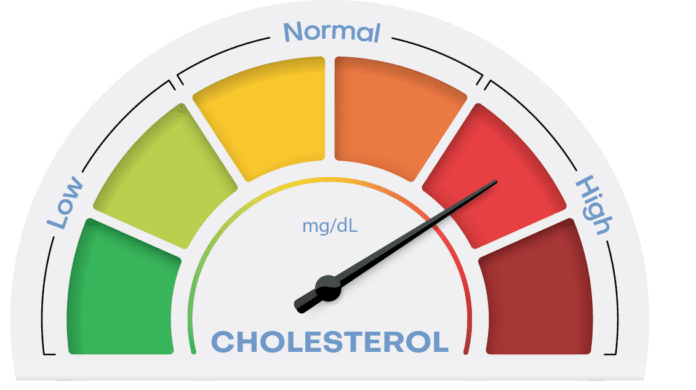It’s likely you’ve been told whether you have “high cholesterol.” Perhaps your healthcare provider has discussed your “LDL” or “HDL” levels with you. You also are probably aware that “high cholesterol” increases your risk for cardiovascular disease. But what is cholesterol—and why does it matter?
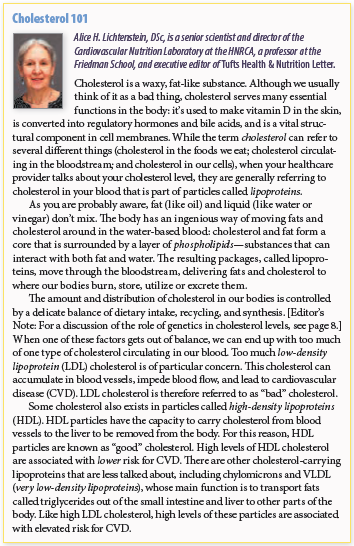
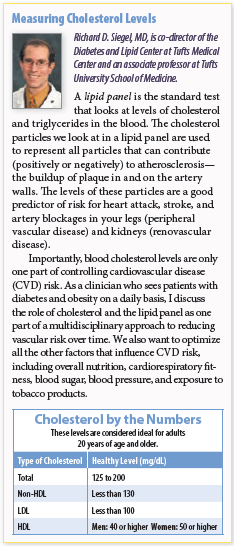

Like us, animals have cholesterol in their bodies. When we consume animal products, we take in dietary cholesterol. While healthcare providers used to recommend all individuals reduce intake of cholesterol-rich foods as a way to avoid high blood cholesterol levels, that recommendation has changed. While some individuals are particularly sensitive to dietary cholesterol, research to date suggests the amount of dietary cholesterol consumed by the typical U.S. adult has little effect on LDL cholesterol levels in the blood.
To control blood LDL cholesterol levels, the major focus should be on reducing intake of saturated fats (like those in fatty cuts of meats, processed meats, butter, lard, and coconut and palm oils), rather than just avoiding high cholesterol foods.
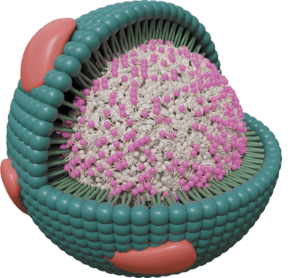
Importantly, it’s not always about what we take away from the diet, but also what we eat in its place. Some swaps that have a positive effect on LDL cholesterol levels incude:
- Replacing saturated fats with heart healthy unsaturated fats from a variety of nuts and seeds, avocados, and soybean and other plant oils.
- Incorporating fatty fish—like salmon, tuna, and mackerel—in place of red and processed meats.
- Shifting to meat-free meals a few times a week by choosing minimally processed plant foods, like beans, nuts and seeds, and tofu.
Alicia Romano, MS, RD, LDN, CNSC, is a registered dietitian/nutritionist and board-certified nutrition support clinician. She provides medical nutrition therapy at Tufts Medical Center’s Frances Stern Nutrition Center.
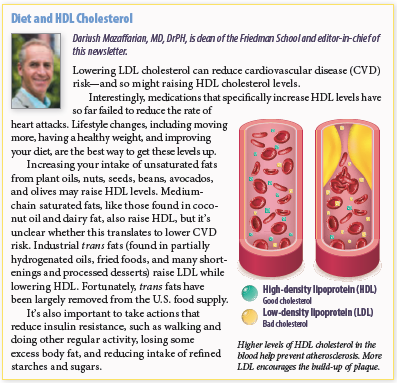
Managing your LDL cholesterol levels is an important step in avoiding and treating cardiovascular disease. Try these tips:
Make a Plan. If you are told you have high LDL cholesterol levels, speak with your healthcare provider about what approaches you can take to lower it.
Lose Weight. If you have excess body fat, commit to positive behavior changes that shift you toward a healthier dietary pattern, cut back on overeating, and increase movement.
Focus on Type of Fat. Replace saturated fats in your diet (from fatty cuts of meats, processed meats, butter, lard, and coconut and palm oils) with unsaturated fats (from minimally processed plant foods, non-tropical plant oils, and seafood).
Don’t Overdo Dietary Cholesterol. If other dietary and lifestyle changes don’t adequately lower your LDL cholesterol levels, assess your intake of dietary cholesterol.
Get Moving. Physical activity can have a positive effect on lipoproteins.
Don’t Skimp on Dietary Fiber. Fiber from fruits, vegetables, and legumes can slow cholesterol absorption. It can also slow bile acid resorption, which lowers blood cholesterol levels by forcing your body to use cholesterol to make new bile acids.
























